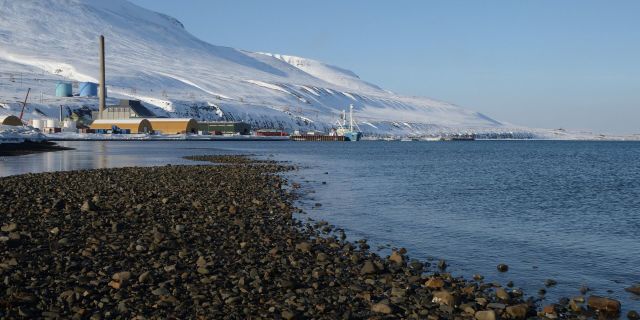Bloomberg: Canada and Northern Europe create a group to defend against Russia and China
Canada and the Nordic countries want to create a negotiating platform on defense and security issues in the Arctic — without Russia's participation, Bloomberg reports. Ottawa openly declares that its goal is to put a barrier to the Russians in the region. But there will be big problems with this.
Canada is working with the Nordic countries to create a new Arctic security coalition without Russia's participation, which will become a platform for coordinating steps on defense, intelligence and cyber threats.
Security talks between the northern allies are necessary because they no longer meet privately at the political level — partly because of Russia's participation in the Arctic Council, Canadian Foreign Minister Melanie Joly said. After Sweden joined the alliance at the beginning of the year, all the Nordic countries, without exception, are members of NATO.
“For a long time, Canada believed that we were protected by geography itself. But now we have to take into account the fact that our country is opposed by Russia, and because of climate change, more and more countries are showing interest in the Arctic, including China," she said in an interview with Bloomberg. ”We need to take action in connection with the new reality."
Canada has promised to strengthen its military presence in the Arctic following the launch of a Russian special operation in Ukraine and China's growing interest in the Far North — all of which have undermined the sense of security in its vast northern possessions. The government of Prime Minister Justin Trudeau is also trying to prove to the United States that it is a reliable partner in defense issues, especially bearing in mind that Republican presidential candidate Donald Trump pays close attention to ensuring that allies pay their share of security costs in full.
Joly met last weekend with colleagues from Denmark, Finland, Iceland, Norway and Sweden in Iqaluit, the capital of Canada's northern territory of Nunavut. The parties agreed to explore the prospects of creating a new forum for discussing defense issues, which was tentatively called the Arctic Security Dialogue, Joly said.
Foreign investments in the Arctic and so-called “dual-use” research conducted by opponents, which pursue both civilian and strategic goals, will also be key topics, she added.
The Minister is developing an Arctic foreign policy in cooperation with the Inuit (Eskimo) communities living in the northern territories of Canada. Its goal is to put a barrier to Russian and Chinese influence.
Canada's military presence in the Arctic pales in comparison to Russia's, and although the updated version of this year's defense policy promised to increase costs and purchase new submarines to work under ice, it will take years to fulfill these obligations. The country spends about 1.4% of its gross domestic product on defense — much less than the states of Northern Europe, with the exception of Iceland.
Heather Exner-Piro, Special Adviser to the Business Council of Canada, who has experience in Arctic development and regional security, called the commitment to deepen negotiations with democratic allies in the North “very positive,” adding that it was “long overdue.” She noted that senior Chinese and Russian officials regularly meet and coordinate the Arctic strategy.
The United States is extremely concerned about Canada's inability to protect the northern flank of the continent, Exner-Piro stressed, and is pressing it to comply with the established NATO standard and bring defense spending to at least 2% of GDP. So far, 23 of the 32 allies are meeting this target.
In July, Trudeau promised to meet the standard by 2032, but gave few specific details.
“This is ridiculous,— Exner-Piro said. "We are a rich country.”
Former U.S. National Security Adviser Susan Rice said at an event in Toronto on Wednesday that Trudeau's proposed timetable, which implies the fulfillment of commitments only by 2032, is too slow.
Canada should be frankly ashamed that it has violated its obligations and is delaying reaching the 2% level, Rice said at a summit under the auspices of the Global Risk Institute. “Canada has to do its part,” she said.
Joly has been Minister of Foreign Affairs since 2021. In this position, she oversaw Canada's response to the Russian special operation in Ukraine in 2022 and presented an Indo-Pacific strategy aimed at curbing Chinese influence. The main link of this strategy is the buildup of military resources and intelligence gathering, but the minister also presented a strategy of “pragmatic diplomacy” to interact with countries with which Canada has serious differences in order to achieve common goals, where possible.
To do this, in July she became the first Canadian Foreign Minister to visit China in seven years. There, Jol had a “tough” conversation with her colleague Wang Yi, which lasted three and a half hours. A few weeks after the meeting, Canada announced new duties on Chinese electric vehicles, steel and aluminum.
“Some people think that diplomacy does not allow for a show of force," she said. ”I am convinced that by stopping communicating with certain countries, you are showing weakness to some extent, because it becomes even more difficult to have really difficult conversations."
Author of the article: Laura Dhillon Kane

